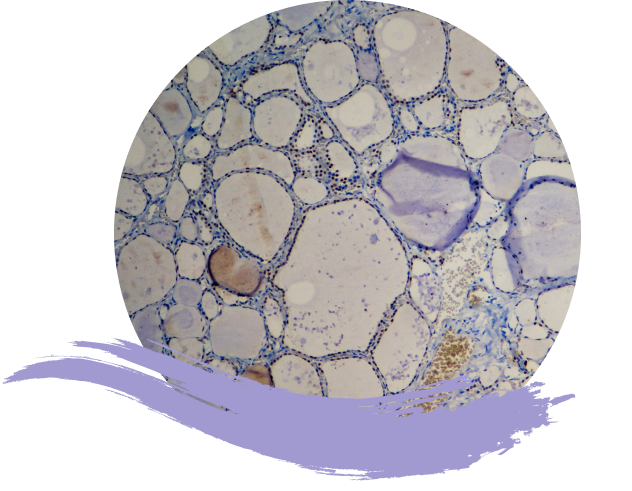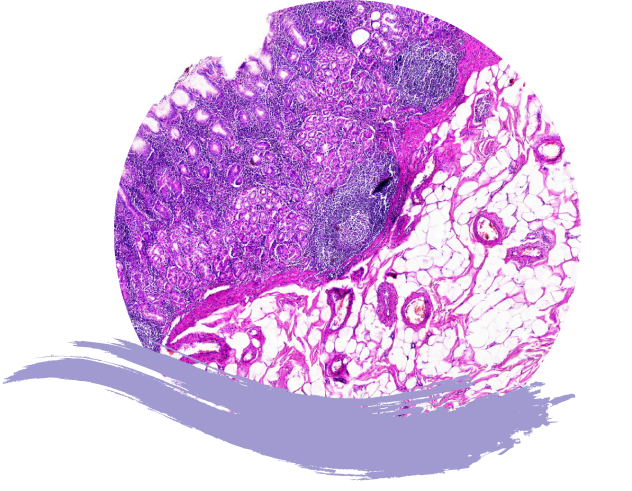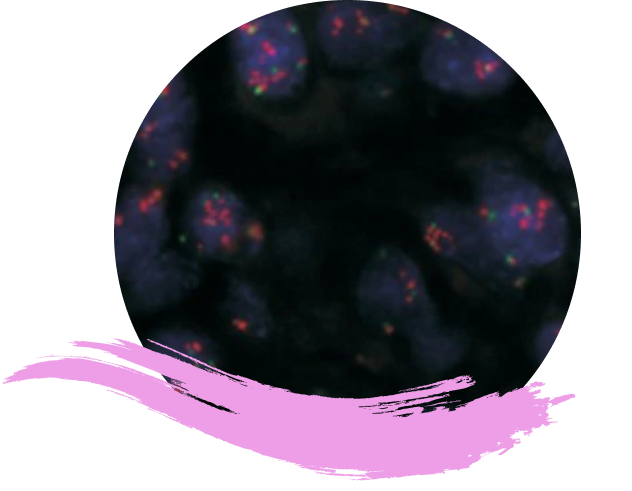
Immunohistochemistry reveals the presence of particular proteins via their specific antibodies in the histological sample. While this technique serves first and foremost as an aid to diagnosis, in some cases it can also have prognostic use since it can highlight markers such as the Braf-V600E mutation in melanoma, a predictive marker of response to therapy targeted by Braf inhibitors. Cerba Path has a large database of these markers, updated continually to keep pace with scientific advances.

Any kind of sample may be entrusted to Cerba Path for molecular analysis. Specific genetic mutations may be identified through this process, which in turn opens up the possibility of targeted therapy. We offer two ways of proceeding: local analysis within the Cerba Path network - especially pertinent when the situation is urgent - or sending the sample to the Cerba laboratory, the French leader in molecular biology, when the analysis requires the most complex technique. All the predictive markers pertinent to a successful response to targeted therapy can be sought out: HER2 (breast and stomach cancer), KRAS and NRAS (colorectal cancer), EGFR, ALK and ROS1 (lung cancer), etc.

Like immunohistochemistry, immunocytochemistry reveals the presence of particular proteins via their specific antibodies and in this way enhances the scope of cytological examinations, providing a more detailed characterisation of the cells under analysis.

The technique of immunofluorescence involves taking exclusive use of a particular sample and applying a specific pre-analytical conditioning to it. It is especially useful in cases of inflammatory skin pathologies, enabling the diagnosis of autoimmune bullous dermatoses and autoimmune diseases such as cutaneous lupus erythematosus. Immunofluorescence is also used in inflammatory renal pathology.
As part of their regular work, the Cerba Path pathologists also:
- assist surgeons in the operating theatre by carrying out extemporaneous examinations that help guide their surgical procedures
- participate in the screening of certain cancers (cervical, colorectal, etc.)
- contribute to statistical studies (CRISAP/ADICAP )
- participate in the multidisciplinary team meetings (MDTs) that help determine patients’ care pathways, notably by presenting the histological casefile by means of the virtual microscope
- organise anatomo-clinical interdepartmental meetings for pathologies such as senology, dermatology, gynaecology-colposcopy, etc.
Contact us
Cerba Path's medical team includes 44 pathologists to assist you in the personalized diagnosis of your patients throughout France.

